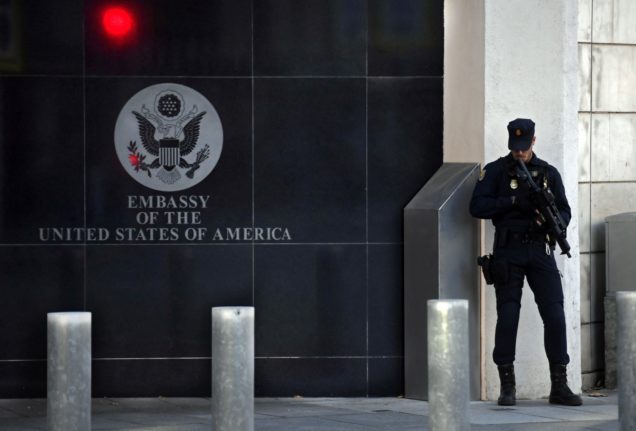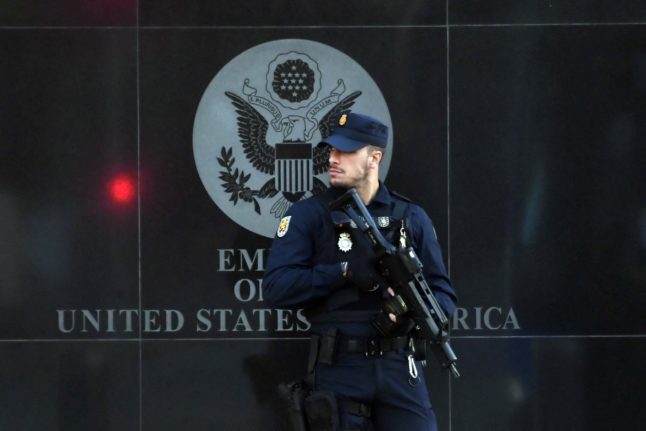The suspect, Pompeyo González Pascual, 75, is facing charges of terrorism and manufacturing explosives for sending letter bombs to six addresses in late 2022, prosecutors wrote in the document, a copy of which was seen by AFP.
They are also calling for the pensioner, whose trial date has not yet been scheduled, to face 12 years of probation after completing his sentence.
Prosecutors said the devices were sent to Prime Minister Pedro Sánchez, Defence Minister Margarita Robles, the US and Ukrainian embassies, a Spanish arms manufacturer that makes grenades donated to Ukraine and a major Spanish military base.
The suspect acted because he was opposed to Madrid and Washington’s support for Ukraine following Russia’s February 2022 invasion and “sought to change those positions and cause a profound upheaval in Spanish society,” they wrote.
A Ukrainian embassy staffer sustained light injuries while opening one of the packages but no one else was hurt, with the others intercepted by security staff.
The suspect was arrested in January 2023 and placed in pre-trial detention but a judge granted him conditional release in April this year on grounds he was not in a position to destroy evidence or likely to re-offend and had no previous criminal record.
His arrest came after a New York Times report said US and European investigators believed Russian military intelligence officers had “directed” associates of a Russia-based white supremacist group to carry out the campaign in Spain.
They suspected the radical Russian Imperial Movement (RIM) was behind the letter bomb campaign but acting on orders of Moscow’s GRU military intelligence service, it said at the time.
“Important members of the group have been in Spain and the police there have tracked its ties with far-right Spanish organisations,” it said.



 Please whitelist us to continue reading.
Please whitelist us to continue reading.
Member comments